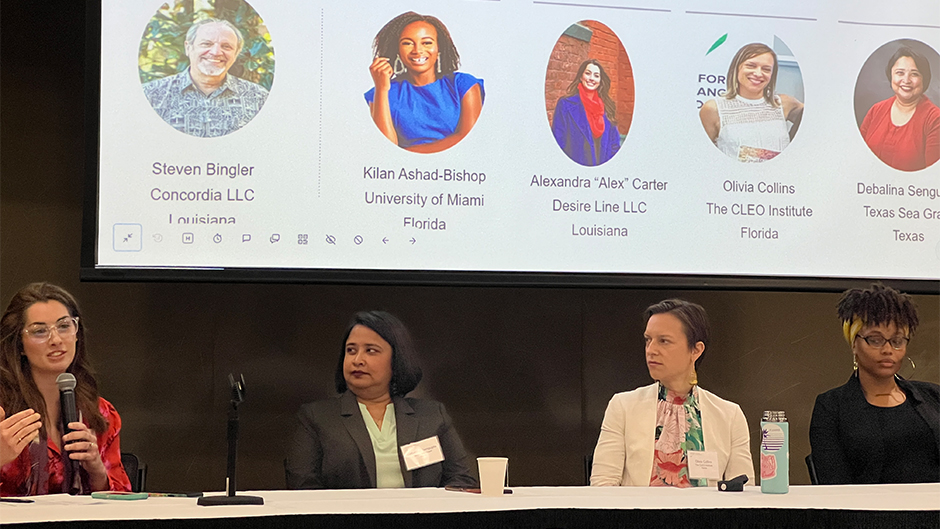U.N. Secretary-General António Guterres warned the Security Council this week that rising seas may cause a “mass exodus on a biblical scale,” calling it “a death sentence” for many island nations and coastal cities.
Action on sea level rise at the College of Engineering
Recognizing the need for more community engagement and research responsive to the climate crisis, the University of Miami College of Engineering hosted the Workshop on Convergent Sea Level Rise for Urban and Rural Systems in the Gulf of Mexico in collaboration with the National Science Foundation (NSF) and RIDER on February 10, 2023, at the Watsco Center in Coral Gables, FL.
The workshop convened experts from the academic, nonprofit, and public sectors to develop better sea level rise adaptation guidelines, research, and community engagement strategies.
Murat Erkoc, Ph.D., associate professor in the Department of Industrial and Systems Engineering, opened the session by encouraging workshop participants to break down barriers in discussions on sea level rise. “We need to speak to people outside of our professional and academic circles. Communities face multifaceted threats from sea level rise. Addressing these will require unprecedented collaboration, which this workshop aims to contribute to.”
Local partners echoed this sentiment. “Resilience is about making sure our communities are thriving, not just surviving,” said Olivia Collins, Senior Program Director of the CLEO Institute, a nonprofit exclusively dedicated to climate crisis education and advocacy.
Gulf coast states–from Texas to Florida–are especially vulnerable to the effects of climate change. Especially in South Florida, imagining the future impacts of sea level rise driven by climate change can be alarming.
“There are effects from climate change that the state won’t be able to save people from,” said Denise Reed, Ph.D., whose involvement in restoration and resilience planning in coastal Louisiana spans three decades. “Looking ahead, we need wide implementation of resilience strategies while also informing coastal communities of the risks of sea level rise.”
The role of retreat in the fight against sea level rise
As communities around the world lose ground to rising seas, government can prevent sudden and catastrophic losses of life and property through managed retreat, a process of relocating at-risk coastal communities to safer inland areas.
“Retreat is one of the inevitable responses to rising sea levels,” Erkoc added. “Coastal hazards and land loss caused by sea level rise force people and businesses to move inland in increasing numbers.”
Tim Slack, Ph.D., professor of sociology at the Louisiana State University, presented on the ongoing effects of land loss in Louisiana, noting, “while the state of Louisiana has lost over 2,000 square miles of land since the 1930s, an area roughly the size of Delaware, it is projected to lose another 4,000 square miles of land in just the next 30 years.”
However, as Robert Habans, Ph.D., Economist at The Data Center of Southeast Louisiana, said, “Managed retreat is complex and can create a whole host of problems if improperly implemented. It requires using the right metrics to understand how flood risk and disaster events impact migration outcomes, origin destination flows, and employment trends.”
The workshop is an important component of the Sustainable Regional Systems–Gulf Research Network, Erkoc’s group aimed at “building adaptive capacities of our connected urban-rural systems in the Gulf Coast Region.”

